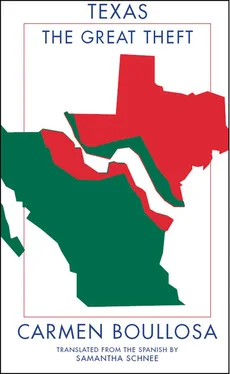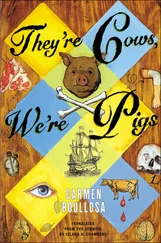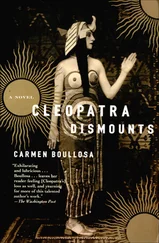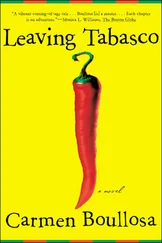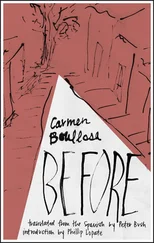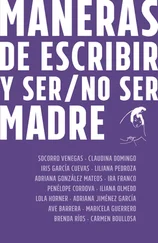The Robins gaped at the land of milk and honey, salivating as if there were sausages hanging from the trees (not that there were many trees, only mesquites and acacias, but the Robins had had enough of pines and spruces, which didn’t bear fruit or provide homes for honeybees). They saw that the wealthy Mexicans on the north bank had nice ranches, fattened livestock, arable land, and people who knew to care for both land and animals. They searched out judges and mayors who could be bought — in Texas corruption was widespread — and then set about taking a piece of it all for themselves.
Since this was a civilized land, the Mexicans weren’t prepared to deal with these professional thieves.
The brothers were tipped off about their first hit, and it wasn’t just any hit, it was a mail coach full of gold and gifts the miners out west were sending back home to their mothers, uncles, children, fiancées, sisters, friends, priests, and even nuns.
This first robbery filled their wallets, and allowed them to stock up on guns and ammunition. Now, armed, dangerous, and with the law in their pocket, they set to work (it must also be mentioned that though the Robins detest Indians, Negros, and Mexicans equally, they don’t let such prejudices get in the way of business; nothing matters to them more than money).

ACROSS THE RIVER LIES MATASÁNCHEZ, the city that Bruneville (talking out its ass) calls its twin. It isn’t true. Long before the Iberians set foot on the land, Matasánchez was founded by the Cohuiltecas, after whom came the Chichimecs, and then the Olmecs, and then the Huastecs, who built their trojes (their elegant barns), and brought their markets, dances, traditional cuisine, and prayer circles. It would be more correct to say that Matasánchez is Bruneville’s grandmother, or if you were to stretch the truth, Bruneville’s mother, with one caveat: Bruneville and Matasánchez have nothing in common.
In 1774, the town was baptized by the Spaniards as Ciudad Refugio de San Juan de los Esteros Hermosos. A mass was celebrated and everyone had tamales and liquor that had recently been shipped across the ocean. When the liquor ran out they began drinking sotol , tequila from the north. They spent the evening playing music and dancing; and from that night on, the city was famed for its fandangos. Its carnivals were also something to see; people of all stripes showed up: men looking for men; maricones who were happy to oblige; prostitutes a little long in the tooth; as well as ones who had recently been bought by their pimps. There were marimbas everywhere — that peculiar half piano, half drum — and street musicians who were always coming up with new ditties. Like their peers in the south, sometimes they called themselves jaraneros , other times minstrels, and on other occasions balladeers. They liked to change their name, just like they changed their ballads, their verses, letting their imagination dance.
They built some gorgeous houses, and even palaces. The church was something to see, as was the central plaza, with an arched, covered walkway surrounding it.
Life in Ciudad Refugio (Matasánchez) was anything but boring. It was attacked by English, Dutch, and French corsairs and pirates. Indian warriors also left their mark. But the citizens were peaceful folk: they were into farming, harvesting, marketing, partying. So instead of fighting with the pirates they did business with them.
They tried this with the Indians, too, but it didn’t work so well.
In celebration of Mexico winning its independence from Spain, the town’s name was changed from Nuestra Señora del Refugio de los Esteros to Matasánchez, in honor of the man who ended the threat posed by the Trece brothers, two arrogant pirates. But we should get back to Nepomuceno and Shears, the story of the highfalutin Trece brothers will have to wait.
When the Anglos from the north became more hostile to the Indians, pushing them into Indian Territory, the whole region bore the brunt of their fury. How could they not be furious? But there was no time to take their feelings into account; folks had to defend themselves or else all the males would have been scalped and chopped to pieces, the women raped and sold. But there weren’t enough walls, moats, and other defenses to protect them. It became necessary to: “Pursue them the way they pursue us; harass them the way they harass us; threaten them the way they threaten us; attack them the way they attack us; rob them the way they rob from us; capture them the way they capture us; terrorize them they way they terrorize us.”
The first challenge was being slowed down by the supplies that burdened them. The livestock they brought along to eat slowed them even more, and there was a risk that the Indians would drain the watering holes or poison them with the cadavers of their prisoners, or even their own horses, before the Mexicans reached them. That’s why, in 1834, the Mexican authorities came to an arrangement with the Cherokees and other tribes, offering them land, the opportunity to trade, and even livestock. One year later, 30 °Comanches stopped in San Antonio en route to Matasánchez to sign a peace treaty with Mexico but the deal fell through. The day eventually came when the Mexicans began trading with them, and that was the end of the Indian threat, at least for a short time.

ON THE DAY that the Shears-Nepomuceno incident took place, Matasánchez celebrated its 85TH anniversary as a Christian town.
Who knows how big the population was in that year of our lord 1859, no one had counted heads recently. To hazard a guess, it was around eight thousand, if not more.
Matasánchez is, and always has been, the big city of the region. Bruneville doesn’t even come close. Eleven years ago, Bruneville was nothing more than a dock on the north bank of the river, used only when the city’s docks were full, or for goods that were en route to a ranch to the north, unless they were headed to the Santa Fe Trail, in which case it was better to continue even further up the muddy river.
Matasánchez, on the other hand, continued to grow, blessed with endless showers of riches. Here’s one example from the era when the Spanish were still in charge: for ten years Matasánchez had the export license for all Mexican silver; the customs office earned a fortune (seven out of every ten ships that docked in New Orleans originated in Matasánchez), and despite the facts that (as previously mentioned) hurricane after hurricane battered the city and regional conflicts cut the population in half, Matasánchez continued to be the principal metropolis and beating heart of the region.
When Bruneville was founded, Matasánchez converted one of its docks, down where the Río Bravo meets the sea, into its principal port. They christened it Bagdad. Bagdad quickly became wealthy, because that’s where the customs house was located, and there was a tremendous amount of traffic.
In fact, no sooner has Sheriff Shears uttered the now-infamous phrase than the dove-keeper Nicolaso Rodríguez scrawls it on a piece of paper, which he folds and slips into the ring around Favorita’s foot. She’s his favorite of all the messenger pigeons that fly back and forth between Bruneville and Matasánchez every day, carrying all sorts of messages: “The Frenchie dry goods vendor wants to know if they want beans.” “Need strychnine urgently; please send on next ferry. Rosita’s in a bad way.” “From the priest to the nuns: bake some more host quickly. We ran out and soon we’ll have to use bread as a substitute.” (This particular message caused a commotion at the convent; one nun swore that unleavened bread attracted the devil and claimed to have “scientific proof” of this, because in San Luis Potosí the mayor’s wife had become delirious after taking unleavened bread for communion when the host ran out.) “Fetch my daughter from the afternoon ferry.” “Don’t come, the steamboat has already left for Point Isabel.” If the message said “Rigoberto” it wasn’t good news — the priest’s name was used when some unhappy soul needed the last rites, on either side of the river; for example, “Rigoberto to Oaks” or “Rigoberto to Rita” or just “Rigoberto” when everyone knew who was at death’s door.
Читать дальше
